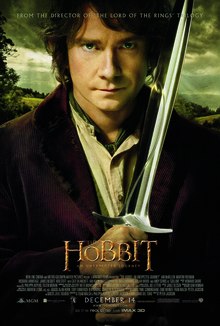
Looking back on the first half of season three of Walking Dead, it's hard not to be impressed. The first round of episodes comes to a close with "Made to Suffer", the latest in a string of very solid outings from Walking Dead. Looking back on these first eight episodes, there were only a couple of in the middle of the season that failed to impress. Everything else has been very strong, and if the trend continues, we could be looking at the first season of Walking Dead in which the number of good, exciting episodes substantially outweighs the bad or boring ones.
Walking Dead has long been a show whose popularity and cultural footprint eclipses the actual quality of the show. It's been like the Friends of genre television. As critically acclaimed and beloved as a show like Mad Men has been, a poorly-rated episode of Walking Dead averages three to four times as many viewers as the adventures of Don Draper. Walking Dead has benefited from a few factors in amassing it's incredibly success. First is the built-in audience that has carried over from the highly-regarded graphic novel. Second is that the pilot episode was one of the best ever for a television show of this sort, and the creators have been quite adept at sprinkling in quality episodes each season to keep people hooked since Days Gone Bye. Third is that everyone is in love with post-apocalyptic fiction, and particularly the concept of a zombie-related apocalypse (the so-called "zombie boom").
For all those reasons, Walking Dead has largely been a show that is better in concept than in execution. Sure, for zombie-philes, the zombie action and effects have always been top-notch, but the characters, story, and dialogue have often been hit-or-miss to say the least. But credit must be given where credit is due, and the makers of this show are obviously interested in listening to what the fans want. Everyone complained about the farm from season two, and the characters soon abandoned it, literally blowing it all to hell in the process. Next, whiny, extraneous characters no one liked were either killed off (Lori) or underwent a character transformation (Carl). In addition, Walking Dead on the whole has featured more action, more direction, and less forced philosophizing in season three. All welcomes changes.
The evolution of the show in a positive direction is once again on display in "Made to Suffer". Most of the episode consists of a tense and well-directed shootout in Woodbury. Numerous characters encounter situations that encourage or demonstrate growth (Carl, the Dixon brothers). And of course, we end on a fantastic cliffhanger that will likely remain in the back of our minds until the show returns in February (!). Also, The Governor finally loses that eye (in a battle with Michonne that is about as cringe-worthy as anything this show has produced thus far).
Tyreese, a beloved character from the graphic novel, also makes his first appearance. Such a vital figure in the comic, it was always a little strange that he hasn't been incorporated into the series yet, and while I'm glad to see him make his debut, the timing couldn't have been much worse. When the character of Oscar became a regular member of Rick's crew in the same episode that T-Dog bit the dust, I joked that Walking Dead could only handle one significant male black cast member at a time, and, as if laughing in the face of my accusations, the creators of the showed opted once again to kill off Oscar in the exact same episode that Tyreese makes his debut.
I'd like to think that that was all simply coincidence, but it is a somewhat disturbing trend I hope will be rectified by the showrunners of Walking Dead in the future. It is great, though, to once again see Chad Coleman (formerly of The Wire) back on the small screen in a major role as Tyreese. It will be a little difficult for me not to see him as Dennis "Cutty" Wise, but I hope that Tyreese/Cutty can teach Carl a few things in the boxing ring. So with that I reluctantly bid a temporary farewell to Walkimg Dead. The show has managed to win me over completely this season in spite of myself, and I've likely never found the wait between episodes of The Walking Dead so unbearable as I will the wait until "The Suicide King" in February.









